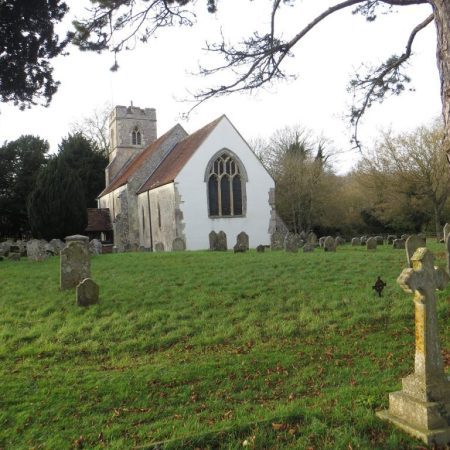By the north side of the tower of Holy Trinity Church, Wonston, near Winchester, lies the red marble tombstone of the Rev. Alexander Robert Charles Dallas, who died on 12 December 1869. He had been rector of the parish for 41 years and the HRO holds more than 50 records relating to him and/or his brother Charles Robert. But more than that, as a young man he had been present at the Battle of Waterloo.
He was in charge of supplying troops on the front line with provisions. His official title was Assistant Commissary-General and as such he was a functionary of the Treasury. It was a role he had already played during a two-year stint in Cadiz, supporting Wellington’s campaigns in the Peninsula War in Spain and Portugal. Whilst there he learnt to play the guitar and became fluent in Spanish. His charge at Waterloo was the 3rd division of the Army, commanded by the Hanoverian Lt-Gen. Charles (Carl) August von Alten.
Dallas came from a Scottish family that had distinguished itself in a restless, slightly manic fashion. Both he and his father, Charles Robert Dallas are in the Oxford Dictionary of National Biography. The son’s portrait is in the collection of the National Portrait Gallery. The father was a barrister and a prolific writer of fiction and other works, the son of a physician who had made a fortune in Jamaica. But the climate did not suit the son and so he set up on the Continent, until forced to flee the French Revolution and then he moved on to America, before returning to England. His nephew George Mifflin Dallas became vice-president of the USA and gave his name to the Texan city.
Dallas senior’s sister was married to an uncle of the poet Byron, which led to a long friendship, though ultimately it went sour. After Byron’s death, Dallas senior attempted to publish some of his letters and other items, but was prevented from doing so by an injunction raised by his executors. However, in 1825, after the death of his father, Dallas junior did manage to publish the material in three volumes under the title Correspondence of Lord Byron with a friend, including his letters to his mother, written … in 1809, 1810 and 1811.
After Dallas junior’s death his widow, Anne – his second wife – compiled a 560-page book entitled Incidents in the Life and Ministry of the Rev. Alex. R C. Dallas, published in London in 1872 (and recently reprinted). It includes an autobiography he had dictated in his last few months. Noteworthy are his memories of Waterloo. He wrote of the moment when the outcome of the battle was far from certain.
“I very soon began to meet stragglers, and panic-stricken camp followers, with not a few runaway soldiers. Presently there came hospital waggons with wounded officers…and from not one of these could I obtain a word of information as to the news on the front.”
A few miles further on he found waggons left in the road, with the traces cut, as drivers fled. Then he encountered a wounded officer on a stretcher with whom he had shared the “dangers as well as the pleasures” of the campaign in Spain. “The doctor said, ‘Shot through the lungs, he cannot live, bid him good-bye.’ [He] opened his eyes and looked a farewell, while mine filled with tears.
There was more carnage: “The next wounded man I met was Lord Uxbridge, who, surrounded by three or four officers, was being carried to the rear, after amputation of his leg.”
Further on, on the outskirts of Waterloo village, Dallas met Alten, who had been wounded in two places and was being supported by two officers on a horse led by a sergeant. Despite the general’s obvious suffering, he still had the welfare of his troops in mind. He said: “Mr Dallas, my brave fellows are famishing for thirst and support, where are the spirits you promised to send them?”
Dallas realised that his order to sustain the troops with mind-numbing drink in the battle had failed, but ever resourceful he found a barrel of rum on a cart and commandeered it for the purpose. Later, when the result of the day’s fighting was known, he encountered the commander-in-chief: “I had the happiness of seeing the Duke of Wellington and his staff quietly riding into Waterloo and I was able to salute him on the evening of his great victory.” The history and daily life of this part of the county are depicted in a well-researched book by Peter L. Clarke, Dever & Down, which is a joy to read (2 ed. 2009, ISBN 978-0-9542929-2-8, £14.95) available at Waterstones, High Street, Winchester, and other good bookshops.

